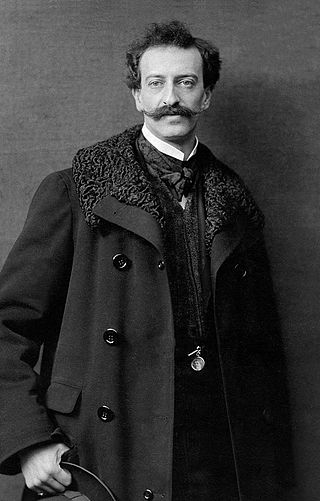
Oscar Nathan Straus was a Viennese composer of operettas, film scores, and songs. He also wrote about 500 cabaret songs, chamber music, and orchestral and choral works. His original name was actually Strauss, but for professional purposes he deliberately omitted the final 's'. He wished not to be associated with the musical Strauss family of Vienna. However, he did follow the advice of Johann Strauss II in 1898 about abandoning the prospective lure of writing waltzes for the more lucrative business of writing for the theatre.
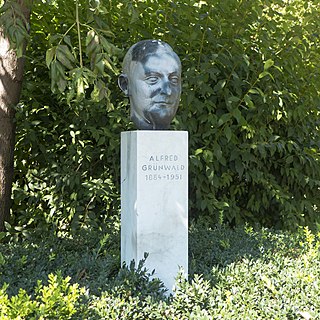
Alfred Grünwald (1884–1951) was an Austrian author, librettist, and lyricist. Some of his better-known works were written in conjunction with the composers Franz Lehár, Emmerich Kálmán, Oscar Straus, Paul Abraham, and Robert Stolz.

Ein Walzertraum is an operetta by Oscar Straus with a German libretto by Leopold Jacobson and Felix Dörmann, based on the novella Nux, der Prinzgemahl by Hans Müller-Einigen from his 1905 book Buch der Abenteuer.

Robert Elisabeth Stolz was an Austrian songwriter and conductor as well as a composer of operettas and film music.

Arnold George Dorsey, known professionally as Engelbert Humperdinck, is a British pop singer described by AllMusic as "one of the finest middle-of-the-road balladeers around". He achieved international prominence in 1967 with his recording of "Release Me".

Alfred Maria Willner was an Austrian writer, philosopher, musicologist, composer and librettist.

Der letzte Walzer is a Viennese operetta in three acts, with music by Oscar Straus, to a libretto by Julius Brammer and Alfred Grünwald. It opened at the Berliner Theater in Berlin on 12 February 1920 and starred Fritzi Massary. It was first given in Vienna at the Theater an der Wien on 5 October 1923, with Betty Fischer, Max Hansen, and Richard Tauber in leading roles.

"The Last Waltz" is a ballad, written by Barry Mason and Les Reed. It was one of Engelbert Humperdinck's biggest hits, spending five weeks at number 1 on the UK Singles Chart, from September 1967 to October 1967, and has since sold over 1.17 million copies in the United Kingdom.

Marta Eggerth was a Hungarian actress and singer from "The Silver Age of Operetta". Many of the 20th century's most famous operetta composers, including Franz Lehár, Fritz Kreisler, Robert Stolz, Oscar Straus, and Paul Abraham, composed works especially for her.
Ernst Marischka was an Austrian screenwriter and film director. He wrote for more than 90 films between 1913 and 1962. He also directed 29 films between 1915 and 1962. He wrote and directed the Sissi trilogy - Sissi (1955), Sissi – The Young Empress (1956) and Sissi – Fateful Years of an Empress (1957). The films were based on the life of Empress Elisabeth of Austria. He was the brother of Hubert Marischka. He was named for the Academy Award for Best Original Screenplay in 1946, for A Song to Remember (1945).

Julius Brammer was an Austrian librettist and lyricist. Some of his better-known works were written in conjunction with the composers Emmerich Kálmán, Oscar Straus, Leo Ascher, Edmund Eysler and Robert Stolz.
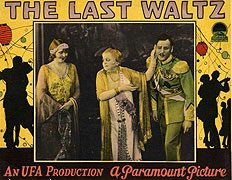
The Last Waltz is a 1927 German silent romance film directed by Arthur Robison and starring Liane Haid, Willy Fritsch and Suzy Vernon. It was based on the 1920 operetta Der letzte Walzer by Oscar Straus.
Leo Mittler was an Austrian playwright, screenwriter and film director. Mittler was born in Vienna to a Jewish family. He attended the University of Music and Performing Arts and worked as a playwright and director in the German theatre. Mittler then switched to work in the German film industry during the silent era.

"Quando m'innamoro" is a 1968 Italian song written by Daniele Pace, Mario Panzeri and Roberto Livraghi and sung with a double performance by Anna Identici and by The Sandpipers at the 1968 Sanremo Music Festival, in which it came 6th.
Nunù Sanchioni was an Italian operatic singer. She was considered one of the finest coloratura sopranos of her generation and was often compared with Mercedes Capsir and Toti Dal Monte. Her best roles included Rosina in Gioachino Rossini's Il barbiere di Siviglia and Gilda in Giuseppe Verdi's Rigoletto.
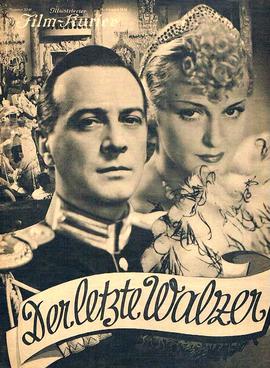
The Last Waltz is a 1934 German operetta film directed by Georg Jacoby, and starring Ernst Dumcke, Max Gülstorff, and Iván Petrovich. It is based on the 1920 operetta The Last Waltz by Oscar Straus. It was remade in English in 1936.
The Last Waltz is a 1936 British musical film directed by Leo Mittler, and starring Jarmila Novotna, Harry Welchman, and Gerald Barry. Barry also provided some assistance with the direction. It was made at the Billancourt Studios in Paris as the English-language version of the French film La dernière valse. It was part of a trend of operetta films during the middle of the decade, and was based on the 1920 operetta The Last Waltz by Oscar Straus.
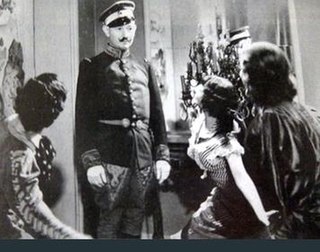
The Last Waltz is a 1936 French-British operetta film directed by Leo Mittler, and starring Jean Martinelli, Jarmila Novotna, and Armand Bernard. It was based on the 1920 operetta The Last Waltz by Oscar Straus. It was made at the Billancourt Studios in Paris. The film's sets were designed by the art director Robert Gys. A separate version was also released in Britain.

The Last Waltz is a 1953 West German musical romance film directed by Arthur Maria Rabenalt, and starring Eva Bartok, Curd Jürgens, and O. E. Hasse. It is an operetta film, based on the 1920 work The Last Waltz by Oscar Straus. It was one of several film adaptations of the operetta. It was shot partly at the Wiesbaden Studios in Hesse and on location in the Rhineland. The film's sets were designed by the art director Max Mellin.

Her Highness Dances the Waltz is a 1935 German-language Czech musical comedy film directed by Max Neufeld and starring Irén Ágay, André Mattoni and Hans Homma.














